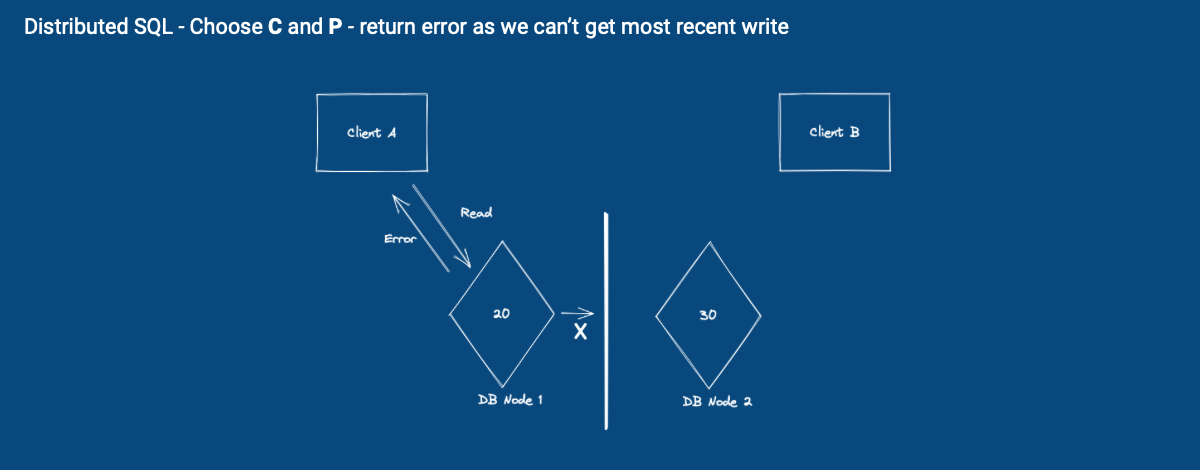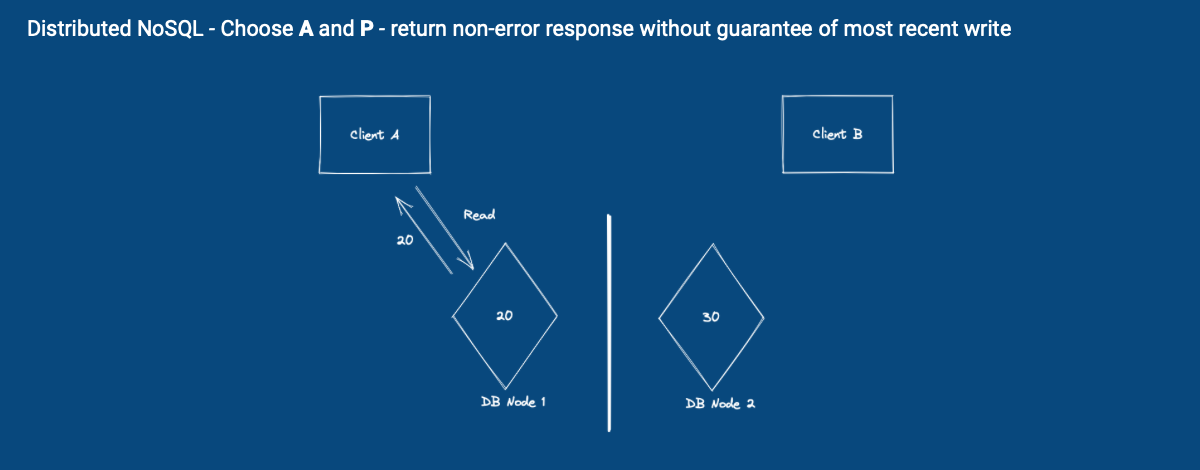Distributed Data store, SQL and NoSQL
Presented on 2nd Oct 2021 by Heath
Table of contents
NoSQL Database
What really is NoSQL?
Technically, it means any database systems that are not SQL database - therefore they include many different types of database system:
- Key Value DB
- Document DB
- Columnar DB
- Graph DB
In practice, NoSQL is typically used to refer to database systems that handle data primarily as document data structure such as DynamoDB, MongoDB, and Cassandra to name a few.
The need for distributed system
“Distributed System - A system whose components are located on different networked computers” - Wikipedia
Distributed system is commonplace nowadays, accelerated in the recent few decades with the rise of the internet and ubiquity of devices that are capable of connecting to the internet. A system consisting of a single server is generally not able to provide fault tolerance or sufficient computing power to run the workload of typical applications in the modern days.
“Distributed Data Store - Computer network where information is stored on more than one node, often in a replicated fashion” - Wikipedia
Being inherently stateful, Distributed data store poses a unique challenge and trade-offs in how it will handle network partition failure, summarised as the CAP theorem.
The CAP Theorem
When network partition failure happens, any distributed data store can only guarantee two of the following propositions:
- Consistency - Every read receives the most recent write or an error
- Availability - Every request receives a non-error response, without the guarantee that it contains the most recent write
- Partition Tolerance - The system continues to operate despite an arbitrary number of messages being dropped (or delayed) by the network between nodes
Typically, the P is always chosen as one of the guarantees, since a distributed system that is not partition tolerant, is a failed product, considering network partition can and will happen throughout the course of the operation of the system. Thus, a distributed data store has to choose only one of either C or A.
How CAP theorem manifests in SQL vs NoSQL
SQL databases provide Consistency and Partition Tolerance guarantees. When a network partition occurs, it will return error response as there’s no way to ensure the data that is read from a single node will be the most recent write.

NoSQL databases provide Availability and Partition Tolerance guarantees. When a network partition occurs, it will return non-error response, but without the guarantee that it is the most recent write.
